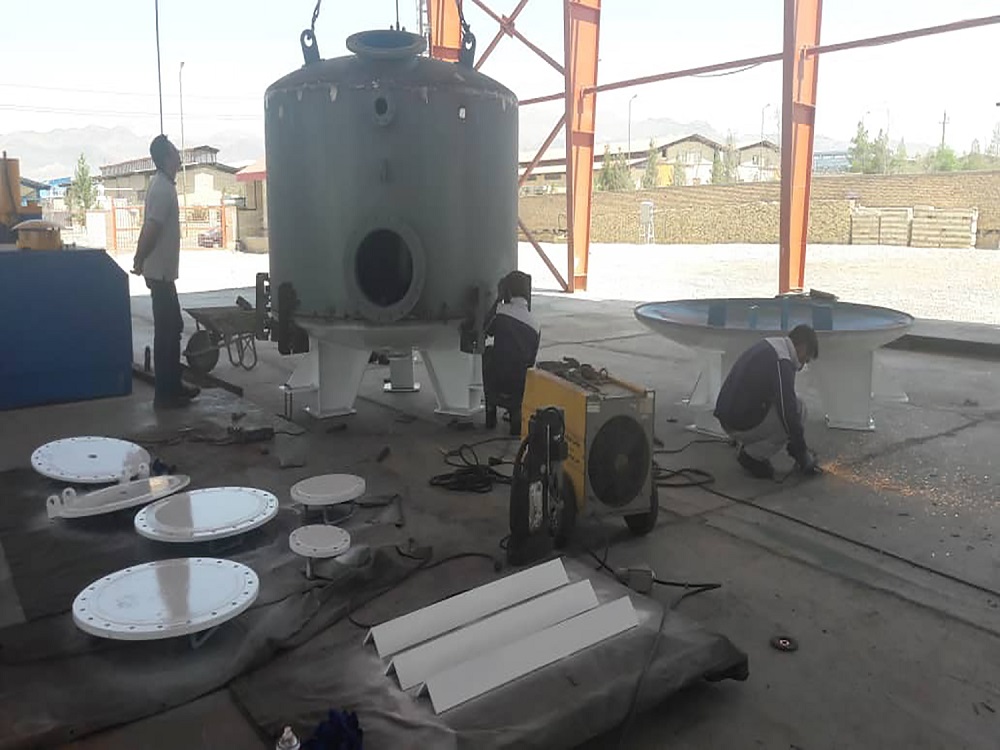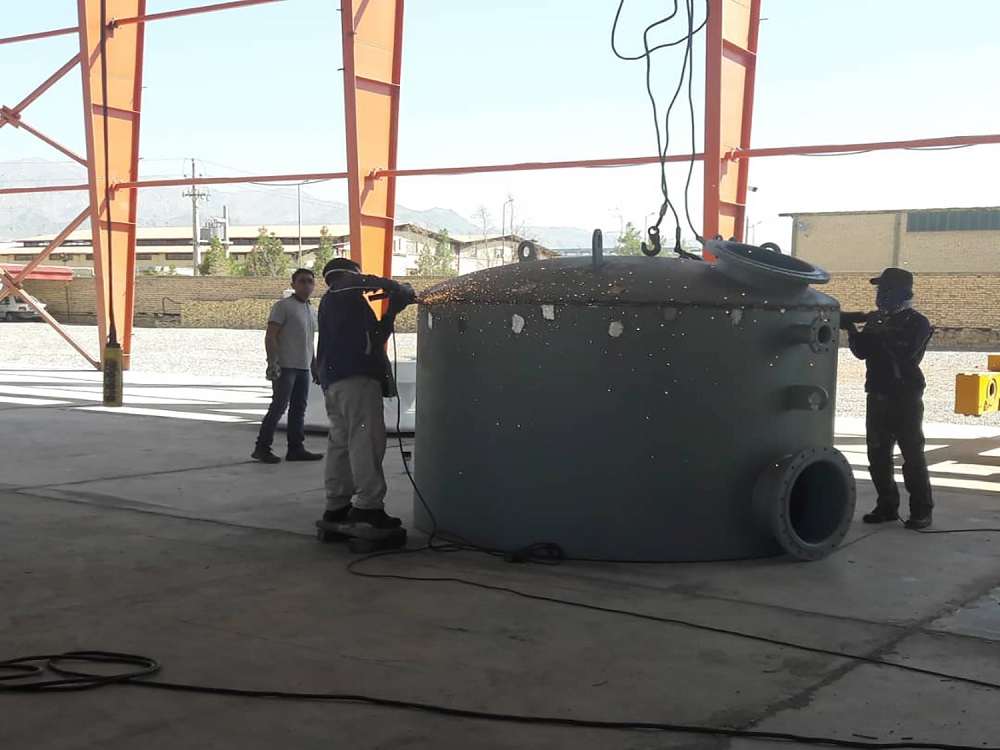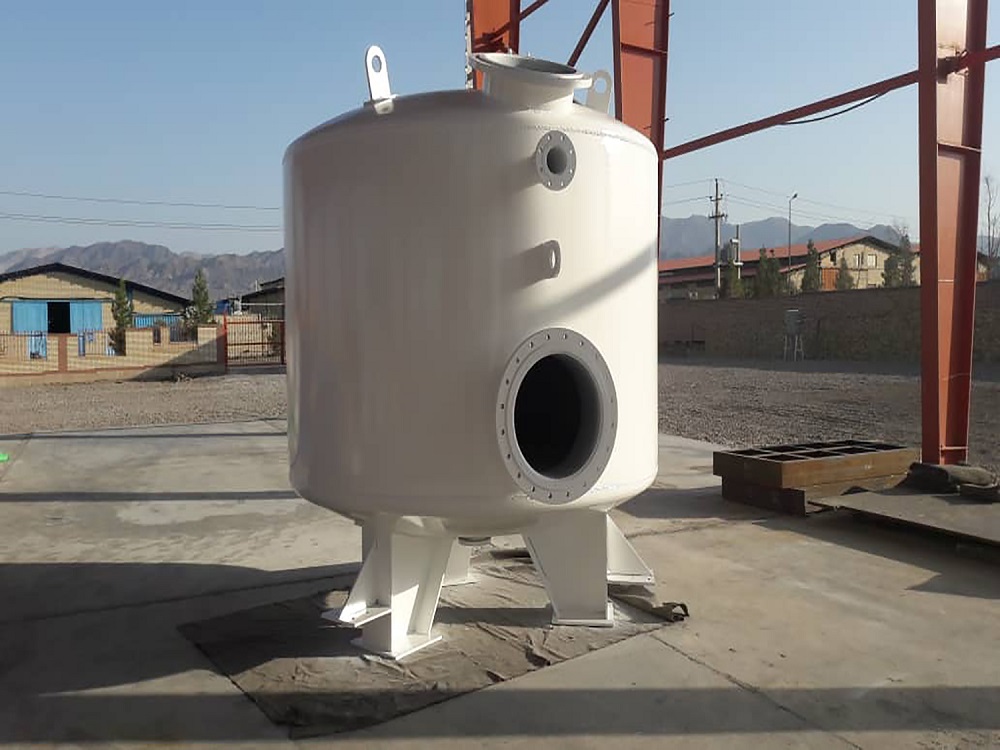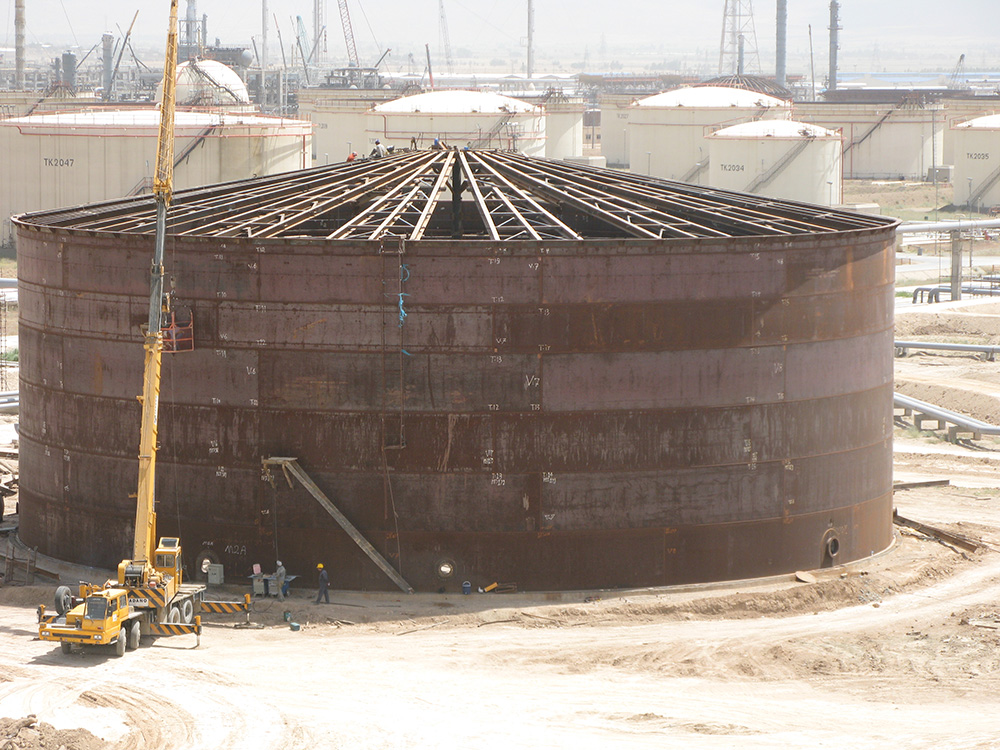A refinery filter is a device or equipment used in the refining process of oil, gas, water, air, and other industrial fluids. These filters are primarily designed to remove suspended particles, contaminants, and impurities from fluids. In other words, refinery filters function as a system to ensure the high quality of the final product.
These filters come in various forms, including fabric filters, mesh filters, carbon filters, water and gas purification filters. The main purpose of these filters is to prevent contaminant particles from entering other refinery equipment, which could lead to equipment failure or reduced efficiency.
Why Is Choosing the Right Refinery Filter Important?
Selecting the appropriate refinery filter is one of the most crucial decisions in refining processes. A poor choice can result in equipment failure, reduced system efficiency, and increased maintenance costs. Filters must be chosen based on the type of fluid, level of contamination, temperature, and operating pressure.

Key Parameters for Selecting a Refinery Filter
- Type of Fluid: Each fluid requires a specific type of filter. For example, filters designed for gas purification differ from those used for water or oil purification.
- Particle Size: The selection of a filter depends on the size of contaminants in the fluid. Filters capable of removing finer particles should be chosen when necessary.
- Environmental Conditions: Factors such as temperature and pressure influence filter selection. Different filters perform better under specific temperature and pressure conditions.
Types of Refinery Filters
Industrial refinery filters are generally classified into several types, including:
- Mechanical Filters: Used to remove large suspended particles from fluids. These filters are typically made of metal meshes or specialized fabrics and are suitable for applications dealing with particles larger than a few microns.
- Carbon Filters: Designed to remove chemical contaminants and unpleasant odors from fluids. These filters use activated carbon as the filtering material and can eliminate dissolved impurities.
- Electrostatic Filters: Used for separating finer particles by employing electric fields to attract suspended particles.
- Sand Filters: Typically used for water purification or similar fluids, utilizing a layer of sand or similar materials to trap contaminants.
Important Considerations for Selecting a Refinery Filter
To choose the best filter for a refinery system, various factors must be considered to ensure an efficient and problem-free purification process. Below are three critical aspects to focus on:
Filter Capacity
Filter capacity refers to the volume of fluid a filter can effectively purify within a given time. This is one of the most crucial parameters when selecting a filter, as filters with insufficient capacity may fail to handle high fluid flows, leading to decreased system efficiency or even equipment damage.
Filters with higher capacity are typically more suitable for refineries processing large volumes of fluids. These filters are designed to operate under heavy-duty conditions for extended periods without significant performance loss or frequent replacement.
When choosing a filter with the appropriate capacity, the required system flow rate should be considered. If the fluid flow exceeds the filter’s processing capacity, blockages may occur, leading to inefficient filtration. Additionally, the type of fluid and the level of contamination influence the necessary filter capacity. Highly contaminated fluids or those containing larger particles require higher-capacity filters to ensure effective purification.
Resistance to Harsh Conditions
Another crucial factor in selecting a refinery filter is its resistance to extreme conditions. Refineries often operate under high temperatures, high pressures, and exposure to corrosive chemicals and gases. Therefore, choosing filters that can withstand these conditions is essential.
Some filters are specifically designed for high-temperature and high-pressure environments. Typically, refinery processes involve fluids under extreme conditions, requiring filters made from durable materials such as stainless steel or heat-resistant alloys.
Filters used in refineries should also be resistant to corrosion and chemical reactions. Suitable materials include stainless steel, titanium, and other alloys resistant to acids and alkalis. Without such features, filters may degrade quickly, losing their efficiency.
Additionally, fluid pressure fluctuations in refineries can cause sudden pressure increases. Filters that can withstand such variations without cracking or malfunctioning offer better long-term performance.
Longevity and Maintenance
A refinery filter’s lifespan and maintenance requirements are also key considerations. Filters with longer lifespans and minimal maintenance needs can reduce operational costs and minimize downtime.
Filters with extended durability typically require fewer replacements, making them more cost-effective in the long run. These filters can continue purifying fluids for extended periods without a decline in efficiency. Selecting such filters is particularly important for continuous refining processes.
Filters that require less frequent replacement or servicing help reduce downtime and maintenance expenses. These filters are often designed with special features that enable them to function for longer periods without needing replacement or cleaning.
Besides longevity, ease of cleaning and replacement is another important factor. Filters that can be washed or repaired tend to have a longer service life and reduce the need for complete replacements. This feature helps minimize costs and maintenance efforts.
Refinery Equipment and Its Role in the Filtration Process
Refinery equipment refers to a collection of tools and machinery used in refining oil, gas, and other industrial processes. These include various filters, distillation towers, reactors, and heat exchange systems.
Ensuring the correct selection of refinery equipment is vital for maintaining system performance. Filters, as a crucial part of these systems, play a key role in maintaining quality and efficiency. Based on the type of fluid and refining process requirements, equipment must be carefully selected and configured for optimal results.
Benefits of Using Refinery Filters
Utilizing refinery filters offers numerous advantages that enhance refining system performance. Some of the key benefits include:
- Improved Product Quality: Filters help remove suspended particles and contaminants, ensuring higher-
quality refinery products. - Extended Equipment Lifespan: By preventing contaminants from entering other refinery equipment, filters significantly enhance equipment durability.
- Reduced Maintenance Costs: Choosing the right filter can lower maintenance requirements and operational expenses.
Refinery Filters from PetroSazeh
With years of experience in the refinery industry, PetroSazeh has successfully provided high-quality filters that meet international standards. The company offers a range of advanced refinery equipment, meeting the diverse needs of the refining sector.

Some advantages of partnering with PetroSazeh include:
- Technical Consultation: Expert advice on selecting the best refinery filters for specific projects.
- Optimized Filter Selection: Choosing the most suitable filters based on operational requirements.
- Quality Assurance: Guaranteeing high-performance filtration systems.
Conclusion
Selecting the right refinery filter requires careful consideration of various factors, including fluid type, contamination levels, environmental conditions, and maintenance costs. Refinery filters play a vital role in enhancing system efficiency and reducing operational costs. By considering these factors and collaborating with reputable companies, optimal refinery performance can be achieved.
References
- Oil & Gas Journal. (n.d.). Filter systems in refineries and their importance in maintaining system efficiency.
- World Oil. (2023). Refinery equipment selection and performance optimization.







